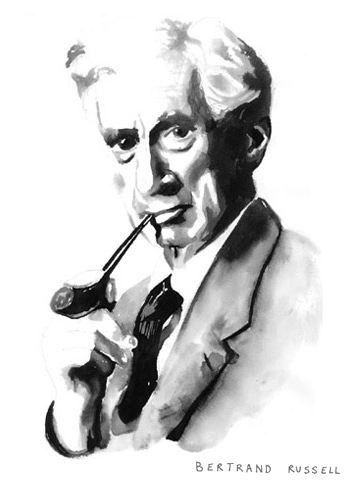RUSSELL'S PARADOX
Publié le 09/01/2010
Extrait du document

Russell was born in 1872, the grandson of the Prime Minister Lord John Russell, and godson of John Stuart Mill. At Trinity College, Cambridge, he accepted for a while a British version of Hegelian idealism. Later, in conjunction with his friend G. E. Moore, he abandoned idealism for an extreme realist philosophy which included a Platonist view of mathematics. It was in the course of writing a book to expound this philosophy that Russell encountered Frege's ideas, and when the book was published in 1903 as The Principles of Mathematics it included an account of them. Much as Russell admired Frege's writings, he detected a radical defect in his system, which he pointed out to him just as the second volume of the Grundgesetze was in press. If we are to proceed from number to number in the way Frege proposes we must be able to form without restriction classes of classes, and classes of classes of classes, and so on. Classes must themselves be classifiable; they must be capable of being members of classes. Now can a class be a member of itself? Most classes are not (e.g. the class of dogs is not a dog) but some apparently are (e.g. the class of classes is surely a class). It seems therefore that classes can be divided into two kinds: there is the class of classes that are members of themselves, and the class of classes that are not members of themselves.
Liens utiles
- Bertrand Russell : MÉTHODE SCIENTIFIQUE EN PHILOSOPHIE - résumé, analyse
- CHRONIQUES DE BIGLOW (résumé & analyse) James Russell Lowell
- La Philosophie de l'atomisme logique de Bertrand Russell (résumé et analyse)
- Bertrand Russell, Science et religion (résumé et analyse)
- RUSSELL Morgan : La Vie de la matière































